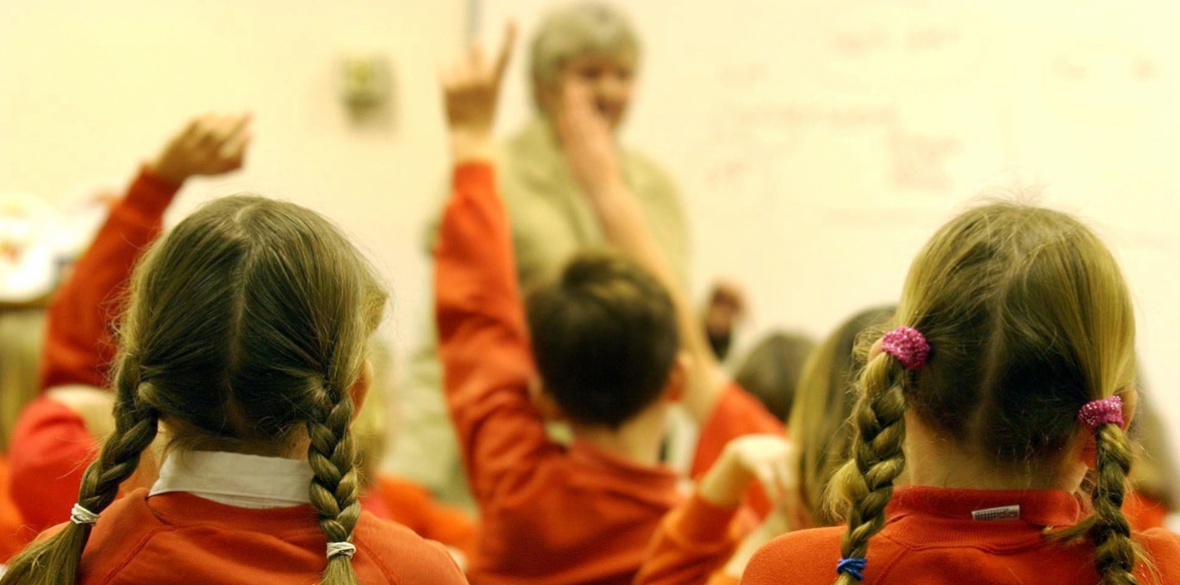This is the last article you can read this month
You can read more article this month
You can read more articles this month
Sorry your limit is up for this month
Reset on:
Please help support the Morning Star by subscribing here
FOLLOWING our successful pay campaign, which dominated much of the work of the union over the past year, the Educational Institute of Scotland (EIS) is refocusing its campaigning work onto other issues which pose challenges to our members in the classroom.
A recent survey of members highlighted that a decline in levels of support for young people with additional support needs (ASN) is a huge source of concern to teachers right across the country. At our recent annual general meeting, a significant number of motions related to ASN support were debated and passed, further highlighting members’ concerns over ASN provision.
As a result, the EIS is now bringing a motion on ASN support to this year’s Trades Union Congress.
The number of young people with ASN or special educational needs (SEN) is increasing in all parts of Britain.
These young people, many of whom are being educated within mainstream schools, require and deserve specialist additional support to enable them to make the most of their education.
In recent years, the policy of mainstreaming young people with ASN or SEN has been a topic of significant debate.
Concerns over this policy, which is sound in principle, have largely been driven by cuts to the staffing and resources required to deliver ASN provision in a mainstream setting.
The simple fact is that young people with ASN should not be placed in a mainstream class without authorities first ensuring that the necessary specialist support is in place to meet their needs.
Mainstreaming is not a cheap option or a means of delivering cost savings for local or national government.
Done well and properly resourced, mainstreaming can offer a whole host of new opportunities for young people with additional support needs, providing them with opportunities to thrive.
However, done poorly and cheaply, mainstreaming can be a negative experience for young people with additional needs and can inhibit their chances of benefiting as they should from their education.
Inadequate ASN provision within mainstream schooling also has a negative knock-on effect on the young who don’t have additional needs — and of course, on their teachers.
It remains the case that, while many young people with additional needs can, if properly supported, integrate successfully into mainstream classes, there is also a significant number for whom mainstream education is not the best option.
This makes it essential that special schools and classes continue to be available in all areas of the country to support young people with complex additional needs, where this model of education is in their best interests.
A survey report on ASN provision, conducted by the EIS, concluded that in many parts of the country the needs of young people with ASN/SEN are not being met adequately.
The reality is that years of austerity have squeezed education budgets substantially, with ASN provision being hit disproportionately hard.
Many specialist ASN posts, teachers and support have disappeared, leaving other staff struggling to cope with the additional workload placed upon them.
Resources have been slashed, also, robbing schools of the necessary means to properly support young people with ASN.
Worryingly, there is also a strong correlation between rising levels of child poverty and the increasing number of young people with ASN.
It is a sad truth that disproportionately high numbers of children living in poverty have ASN.
It is for all of these reasons that the EIS is proposing its motion calling on the TUC to campaign for better ASN/SEN resourcing through increased core funding in order to help teachers, support staff and specialists to deliver adequate additional support needs provision, thereby mitigating the effects of poverty.
We hope that this motion will win the strong support of all affiliate unions at this year’s Congress.
Larry Flanagan is general secretary of the Educational Institute of Scotland, Scotland’s largest teaching union.










